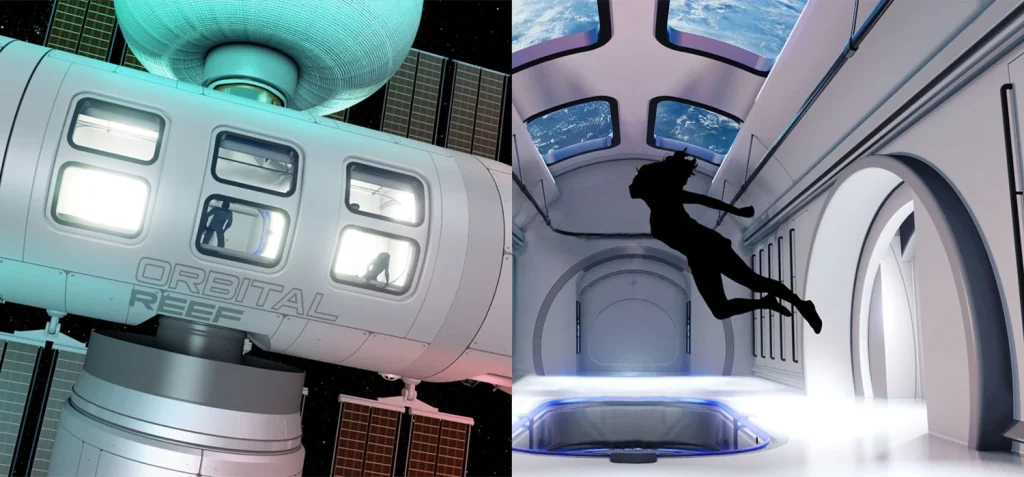Blue Origin, Amazon founder Jeff Bezos’ space company, announced plans to launch a space station capable of housing at least ten people by the second half of the 2020s. The concept, dubbed “Orbital Reef” by the company in a press release, is likely to be a mixed-use space business park capable of supporting microgravity research and manufacturing.
Blue Origin and Sierra Space will co-manage the venture, which will be supported by Boeing and Arizona State University. “For over sixty years, NASA and other space agencies have developed orbital space flight and space habitation, setting us up for commercial business to take off in this decade,” said Brent Sherwood, a Blue Origin executive. He went on to say that Blue Origin will work to broaden access, lower costs, and provide all services and amenities required to normalize space flights.
Orbital Reef, a private outpost in space, is one of several similar concepts in the works as the National Aeronautics and Space Administration (NASA) of the United States considers the International Space Station’s future over the next decade.
Only last week, Nanoracks, a space services company, announced plans for a space station that would be operational by 2027. The project will be developed in partnership with Voyager Space and Lockheed Martin.

Blue Origin has released a fact sheet outlining the plans for Orbital Reef. According to the fact sheet, Orbital Reef will fly at a 500-kilometre altitude, slightly above the International Space Station, with residents of the business park witnessing 32 sunrises and sunsets per day.
The space station will have a volume of 830 cubic meters and will be able to house 10 people, making it slightly smaller than the International Space Station (ISS).
The International Space Station (ISS), a rare example of US-Russian cooperation in space, was completed in 2011. Russia has recently equivocated on the future of the space partnership, which is currently rated safe until 2028. According to NASA officials, the commercial sector should step up and replace the international space station by 2030.
